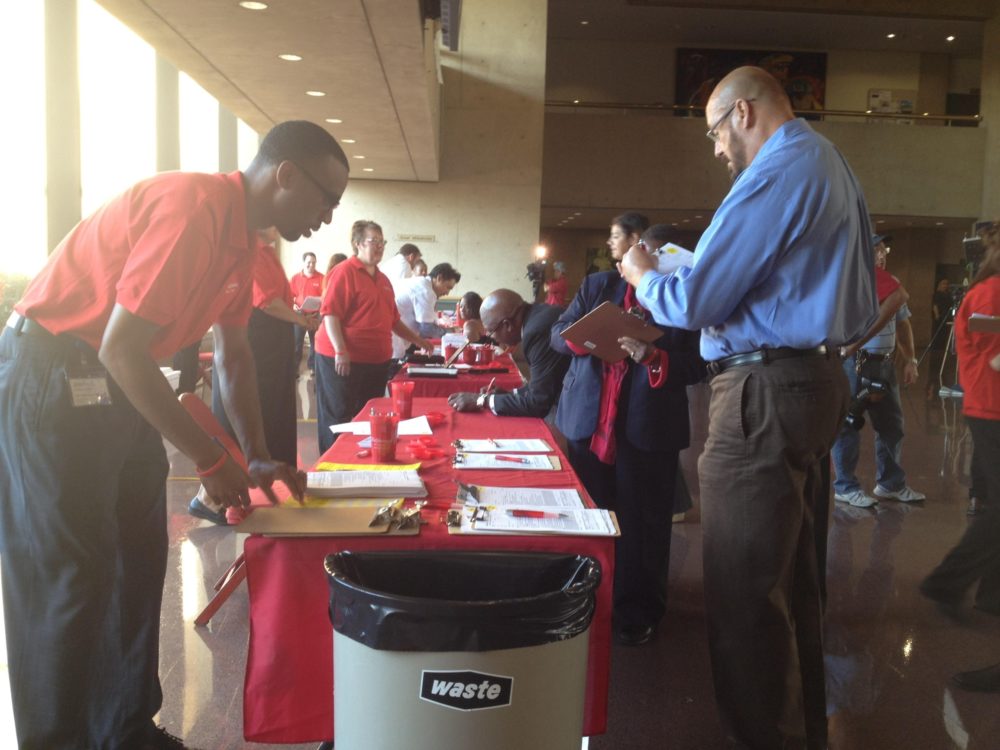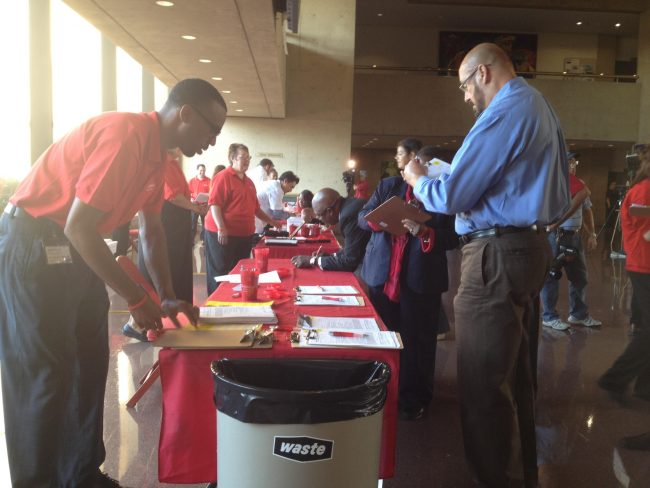
(Courtesy of Flicker)
About 36,000 people in the U.S. die each year of the influenza virus. Up to 20 percent of the population gets the flu each year. Healthcare workers, teachers, children, the elderly, the unemployed: the flu knows no boundaries.
“It’s time to put a stop to it,” said Raj Chhadua, the Dallas-area district pharmacy manager of Walgreens, which is offering free flu shots throughout the season for those who are currently unemployed or uninsured.
Walgreens Co., in cooperation with the city of Dallas and the Dallas County Health and Human Services, has mounted an initiative to provide more than 5,000 free flu shots this fall to uninsured or underinsured residents of Dallas County. These vaccinations will be available at 12 Walgreens locations around the county. A full list of dates and locations of these events can be found here.
For those with insurance, Walgreens will provide flu shots for a charge of $20-$30, depending on the location.
“Our goals are simple. We want to reach everyone who needs this preventative medicine and to reach more people that we did last year,” said Emanuel George, the Dallas-area distract pharmacy supervisor for Walgreens in Dallas.
Last year, in its first year of the program, Walgreens provided $10 million in vouchers for flu shots nationwide.
“The turnout was fantastic, especially considering that it was the infancy of the program,” said George.
However, not all of the vouchers were redeemed, and Walgreens hopes that this year even more people will show up.
“If we could get fifty percent of the vouchers redeemed this year, the company would be extremely pleased,” said George.
Walgreens has worked with the Dallas community to market the program.
“We’ve worked with churches and homeless shelters that deal with some of the less privileged communities in Dallas,” said George.
One of Walgreens’ marketing strategies was to provide free flu shots at Dallas City Hall on Sept. 19 for ‘Stop the Flu Day’.
The shots were provided free of charge to all city employees, as well as any uninsured people who arrived with a voucher.
Dallas Councilwoman Monica Alonzo, who represents District 6, showed her support by receiving her vaccination at City Hall that day.
Dallas employees and other residents joined in conversation in the lobby of City Hall while they stood in line for their vaccinations. Some, like Pam McDonald, the Civil Services Manager for the City of Dallas, spoke approvingly of Walgreens’ program
“It’s real beneficial to the community, and even if they can’t get their shots here today, they can get them at other places around town,” said McDonald.
But how important are flu shots really? Many people, not just those who can’t afford them, skip getting vaccinated because they can’t find the time, or have a phobia of needles.
According to the CDC, a flu vaccination, either by shot or by nasal spray, is the single most effective way to prevent the influenza virus.
“The flu vaccine is the best way to prevent a flu outbreak in Dallas County and throughout the nation,” said Zachary Thompson, the Dallas County Health and Human Services Director.
According to Thompson, it is particularly important that shots are available for low-income and uninsured residents. These people, along with seniors, are the most vulnerable demographic in the city, and the most susceptible to the virus.
Some Dallas residents say that providing the shots isn’t just help to the uninsured, but to the community itself.
“It helps everybody. If someone doesn’t come here and get their flu shot, they might just run around town and get someone else sick,” said Bernadette Ragan, a Dallas resident who was getting her flu shot at Dallas City Hall.
Flu season begins in October and lasts through April. However, it is important not to wait to get a flu shot.
“It takes the body about two weeks after vaccination and antibiotics to develop protection against the virus infection,” said Councilwoman Alonzo.
It is especially important that the elderly get their flu shots. According to reports from the Health and Human Services Department, about 90 percent of deaths due to influenza occur in individuals ages 65 or older.
This isn’t the first initiative that Walgreens has helped crusade for in the Dallas area. During the swine flu scare of 2009, the pharmacy provided vaccinations to anyone who couldn’t afford a preventative shot.
“We believe that we have a duty to help people get the treatment that they need, when they need,” said Kate Turner, a new business development employee of Walgreens.
Walgreens has provided 5,000 vouchers in Dallas and 5,000 more in Fort Worth. According to Raj Chhadua, the district pharmacy manager, each of these vouchers hold a value of about $45.
“But when you factor in the shots, the labor, and the fact that people aren’t going to get the flu this year, I think the cost is priceless,” he said.
https://smudailycampus.com/news/metropolitan

(Courtesy of Flicker)









